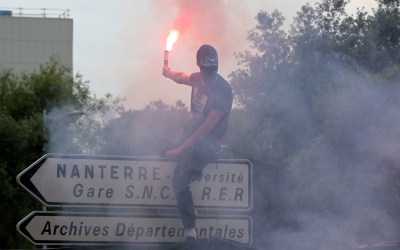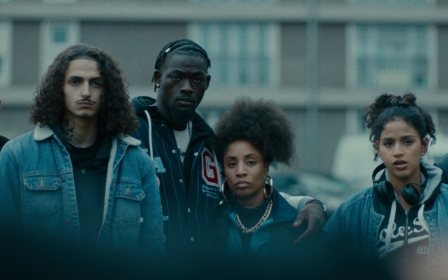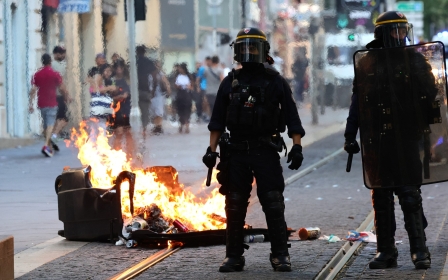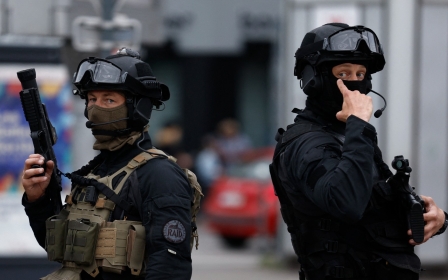France once again criticised by the UN for its police's 'excessive' use of force
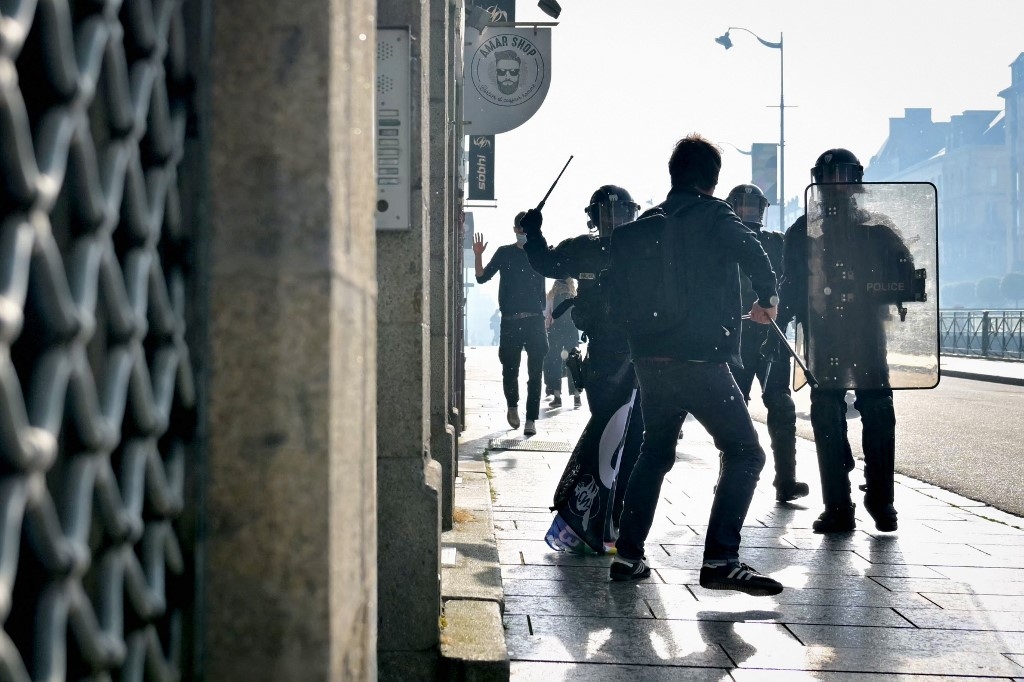
A new UN report accuses French police of excessive use of force and disproportionate targeting of minority groups, leading to several deaths resulting from the use of firearms during traffic stops and serious injuries in the policing of protests.
The UN Human Rights Committee said in its recommendations that it "remains concerned by the number of reported cases of excessive use of force", especially "during traffic controls, arrests, forced evacuations and demonstrations", AFP reported on Thursday.
The committee explained the dire consequences of this violence, highlighting "the number of deaths resulting from the use of firearms by law enforcement officers during traffic checks".
The use of firearms and intermediate weapons, it added, "has had serious consequences for protesters mainly and others, with many people becoming blind, people losing their arms and people being seriously injured".
New MEE newsletter: Jerusalem Dispatch
Sign up to get the latest insights and analysis on Israel-Palestine, alongside Turkey Unpacked and other MEE newsletters
The committee also highlighted that the use of such weapons "disproportionately affect members of certain minority groups, in particular people of African and Arab descent, indigenous peoples and migrants".
Over the past three to four years, the committee has criticised the police for employing "no form of de-escalation to control the protests" and instead taking "a confrontational stance towards the protests".
The human rights body also expressed concern about "the apparent lack of appropriate sanctions and cases of apparent impunity".
It pointed to the case of Adama Traore, a young man of African descent who died in 2016 after gendarmes used prone restraint during his arrest, and criticised that "no one" was "held responsible for his death".
The committee stressed the "need to review the legal framework and operational procedures governing the use of force by law enforcement, including the use of firearms and intermediate weapons". It gave France a maximum of three years to report on the steps taken to address its recommendations.
This is one of the "urgent priority recommendations" for France, said Jose Manuel Santos Pais, vice president of the committee, which consists of 18 experts tasked with monitoring the implementation of the International Covenant on Civil and Political Rights (ICCPR).
Many precedents
France has faced repeated criticism from the UN and various national and international organisations, including the Council of Europe, over the excessive use of force by its law enforcement agencies.
This has been particularly evident during protests, such as the "yellow vests" social movement in 2019, the demonstrations against pension reform in 2023 and the ongoing protests against the controversial "megabasins" project that began last year.
In July 2023, during nationwide riots sparked by the death of Nahel Merzouk - a 17-year-old of North African descent who was shot in the chest by a police officer during a roadside check - the UN Committee on the Elimination of Racial Discrimination issued an urgent statement denouncing "the excessive use of force by law enforcement".
The committee also called on France to enact legislation that "prohibits racial profiling".
In March of that year, Amnesty International similarly "warned about the excessive use of force and abusive arrests", urging authorities to "ensure the safety of demonstrators".
It cited the case of a protester who "presented no danger" but was struck in the groin with a baton in January, resulting in the amputation of a testicle.
According to Reporters Without Borders, journalists covering the pension reform protests were "subject to numerous arbitrary arrests, assaults and intimidations by the police".
Each time, however, the French government disputed the accusations, as it did in 2023 when it dismissed the UN’s comments during the riots as "excessive".
Middle East Eye delivers independent and unrivalled coverage and analysis of the Middle East, North Africa and beyond. To learn more about republishing this content and the associated fees, please fill out this form. More about MEE can be found here.


